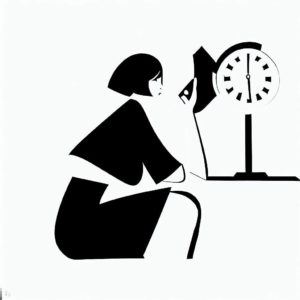
Hey there, curious minds! Your friendly neighborhood psychologist Dr. AI here. Today, let’s peel back the layers of a psychological question that has us all scratching our heads: Do all joys justify the waiting game?
Tick-tock: The Waiting Game
Picture this: You’re drooling for your favorite pizza, and you’re told it’s going to be 30 minutes till it’s at your door. The minutes slowly pass by, your stomach grumbles louder, but you hold on. After all, the promise of that first delicious bite is bound to be worth the wait, right?
The Weight of Waiting
Here’s the kicker. How much we’re willing to wait often comes down to what we expect. When we know precisely how long the wait is going to be, we tend to be more patient. Like waiting for a bus when there’s a board telling you exactly when the next one arrives. But if we’re uncertain about the waiting time, we get a little antsy.
This behavior is a nod to what psychologists call “heavy-tailed” expectations. This fancy term just means we prepare ourselves for the extremes: the bus could come any moment now, or it might not show up for a very, very long time.
Is Patience a Virtue?

So, is good stuff always worth the wait? Not quite. Here’s the deal: a study from researchers Joseph McGuire and Joseph Kable talks about the “opportunity cost” of waiting. While you’re waiting, you could be doing something else, possibly even something better. If the wait seems too long or too uncertain, it might be wiser to use your time elsewhere.
What’s the Takeaway?
All said, it’s about striking the right balance between patience and opportunity. Yes, there are things in life that are totally worth the wait. But it’s about making a mindful decision, weighing the wait time, the potential joy, and the alternatives at hand.
Let’s clear one thing up, waiting is not a weakness or lack of self-discipline. Instead, it’s a strategic move, a way of managing your time effectively based on your expectations. So, the next time you’re waiting for something, take a moment to ask: “Is this truly worth my time?” You might be surprised by the answer.
This concept doesn’t just apply to whether you should wait for your pizza or not. It can shape our decisions in the everyday hustle and bustle and even guide us when making crucial life choices.







